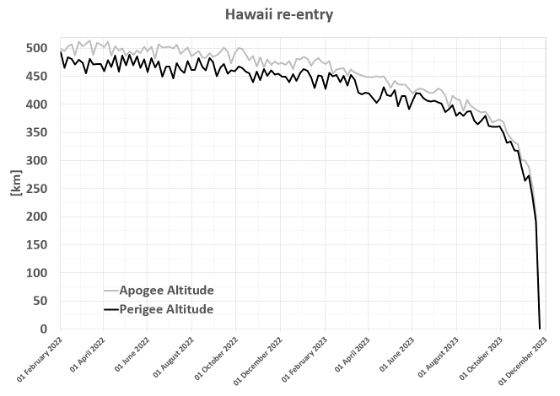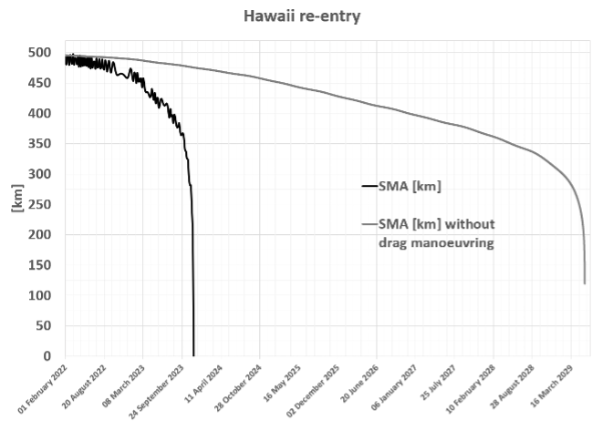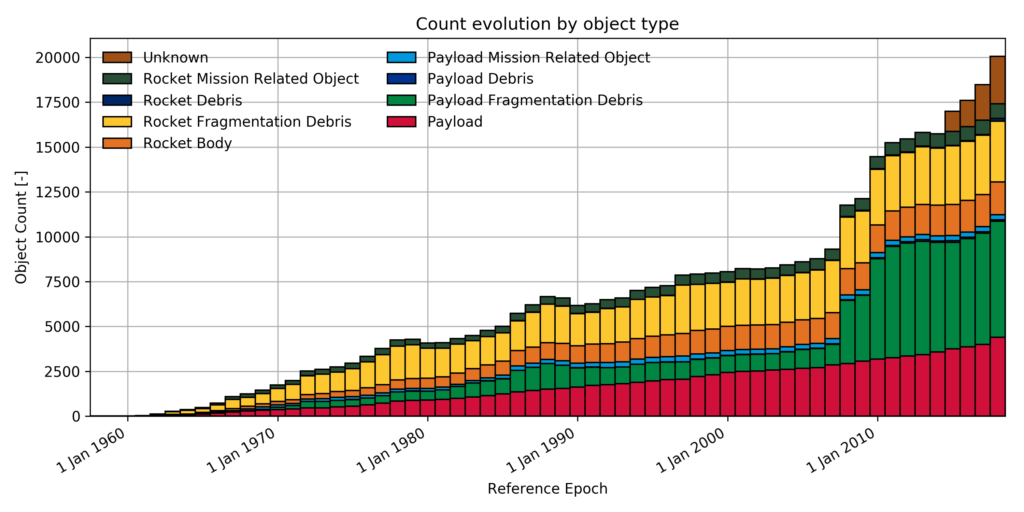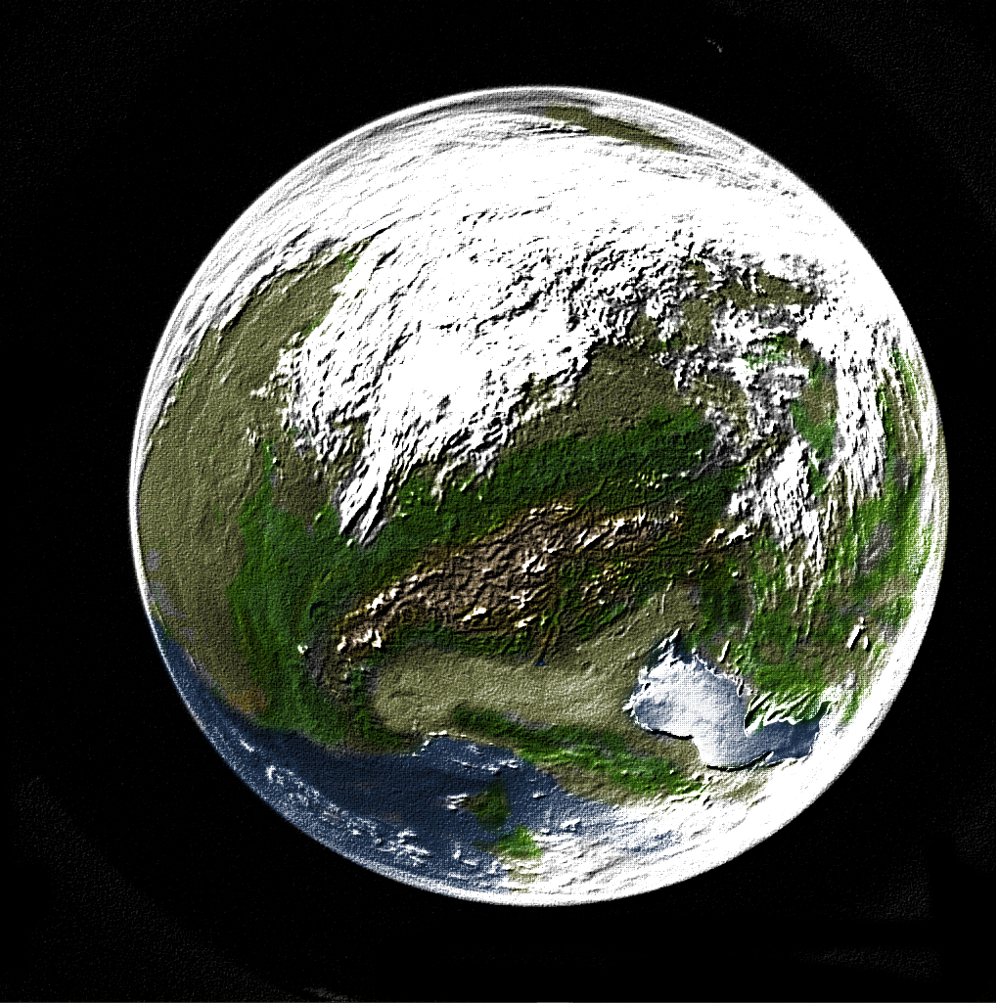Casting a sustainable Astro-plan to reduce space debris
23 Nov 2021 | 6 min read
Because of our planet’s finite resources, tapping into outer space’s reserves is key to building a sustainable future. That’...

As pioneers in the space industry, Astrocast has always been committed to pushing the boundaries of innovation while prioritising sustainability. Our recent accomplishment in successfully deorbiting the “Hawaii” nanosatellite is a testament to our dedication to clean space initiatives and responsible satellite operation. In this article, we delve into the significance of this milestone and its meticulous process, as shared by key members of our team: Federico Belloni, Stefano Rossi, and Kexin Ma.
The Importance of Deorbiting
Federico Belloni, our CTO, emphasises the importance of removing satellites from orbit once they have fulfilled their mission objectives. By doing so, we mitigate the risk of space debris accumulation, ultimately reducing the likelihood of catastrophic collisions. Belloni underlines that by deorbiting satellites like “Hawaii,” we contribute to the sustainability of space operations, aligning with the guidelines set forth by major space agencies.
The Deorbiting Process
Stefano Rossi, our Satellite Platform Team Leader, sheds light on the intricacies of the deorbiting process: Astrocast’s operation control increases the satellite’s atmospheric drag manoeuvring and monitoring the satellite, accelerating its descent towards Earth. Rossi highlights that the altitude decay of the satellite’s apogee and perigee are therefore quickened, showcasing the successful implementation of our deorbiting strategy. This deliberate approach, together with constant monitoring and adjustment of the trajectory, ensures the satellite’s destruction upon re-entry, minimising the generation of space debris and possible collision during the process.


Environmental Impact and Regulatory Considerations
Rossi further highlights the environmental impact of space debris, citing statistics from the European Space Agency (ESA). With over 56,450 tracked objects in orbit, including defunct satellites and debris, the risk of collisions continues to increase. However, by adhering to stringent deorbiting protocols and monitoring constantly alerts, Astrocast actively contributes to mitigate this threat and prevent the onset of cascade collisions that could render certain orbits unusable. Despite the existence of guidelines from space agencies, Rossi acknowledges the need for global cooperation to enforce robust regulatory frameworks for satellite deorbiting.

Demonstrating Technological Capabilities
Kexin Ma, our Space Operations Team Leader, underscores the significance of the deorbiting operation as a demonstration of Astrocast’s technological prowess. With an operation centre equipped to detect any anomalies, our OPS team ensures proactive surveillance. Collisions are not merely anticipated but actively analysed, with alerts swiftly scrutinised and responded to by our adept OPS team. Through seamless collaboration with entities like the European Space Agency (ESA), we extend our reach, pooling resources, and expertise to monitor and analyse re-entry trajectories. This synergy, this synchronised effort, emphasises our commitment to safety and efficiency in the vast expanse of space.
Hawaii as a Precursor Satellite
Adding to the discussion, it’s crucial to recognise the specific context surrounding the “Hawaii” nanosatellite. Launched in 2019, “Hawaii” served as Astrocast’s precursor satellite, alongside “Kiwi” – it’s predecessor, to demonstrate Astrocast’s technology and the ability to operate a constellation. It underwent various tests to ensure optimal performance for future commercial satellites. Notably, the precursor satellite was deliberately deorbited in November 2023, showcasing Astrocast’s proactive approach towards managing space debris and adhering to responsible satellite operations.

Looking Ahead
Astrocast remains steadfast in our commitment to advancing sustainable practices in space. Through ongoing innovation and collaboration, we aim to shape a future where responsible satellite operation and environmental preservation go hand in hand. .
In conclusion, the deorbiting of “Hawaii” marks a significant milestone for Astrocast, underscoring our dedication to sustainability and responsible space stewardship. By prioritising the removal of defunct satellites from orbit, we contribute to a cleaner and safer space while continuing our mission to take IoT further. As we continue to push the boundaries of innovation, we remain committed to shaping a more sustainable future.